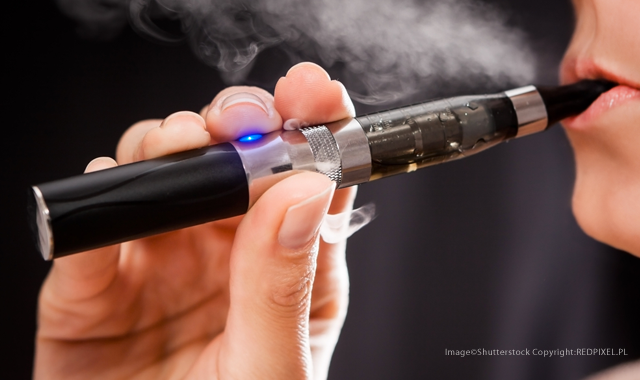E-cigarettes shown to be detrimental to oral health in new study
A new study from Université Laval takes a look at the effects of e-cigarettes on gingival epithelial cells.

E-cigarettes have often been touted as a healthy alternative to conventional cigarettes. Instead of smoke, they produce vapor, which is often believed to be relatively harmless.
However, say researchers at Université Laval, this vapor still contains a variety of harmful chemicals that can damage the epithelial lining of the mouth. The study, as reported by Science Daily and published in the Journal of Cellular Physiology, found that e-cigarettes are more dangerous than many believe.
Related article: New study finds that dental visits can reduce the risk for pneumonia
"Contrary to what one might think, e-cigarette vapor isn't just water," explains Dr. Mahmoud Rouabhia, a researcher at the university whose team conducted the research. "Although it doesn't contain tar compounds like regular cigarette smoke, it exposes mouth tissues and the respiratory tract to compounds produced by heating the vegetable glycerin, propylene glycol and nicotine aromas in e-cigarette liquid."
The study focused its efforts on the effects of e-cigarette vapor on gingival epithelial cells. The team placed cells into a small chamber containing a saliva-like liquid. The cells were then introduced to e-cigarrette vapor equivalent to two five-second inhalations per minute for 15 minutes a day.
Related: Study finds smoking dangerously alters oral microbiome
In normal circumstances, the epithelial cells would have died off at a rate of two percent. In the experiment, after one, two and three days, the cells died off at rates of 18, 40 and 53 percent, respectively.
The research is worrying to Dr. Rouabhia, who reminds us that the "mouth epithelium is the body's first line of defense against microbial infection,” and that it “protects us against several microorganisms living in our mouths." At DPR, we’ve shown you over and over just how dangerous these oral microorganisms can be.
The effects of the damage have not been studied in detail, but the potential effects do give Dr. Rouabhia, who is also a member of the Oral Ecology Research Group (GREB) at Université Laval, a reason to be concerned. Says Dr. Rouabhia, "Damage to the defensive barrier in the mouth can increase the risk of infection, inflammation and gum disease. Over the longer term, it may also increase the risk of cancer. This is what we will be investigating in the future."
Oral Health Pavilion at HLTH 2024 Highlighted Links Between Dental and General Health
November 4th 2024At HLTH 2024, CareQuest, Colgate-Palmolive, Henry Schein, and PDS Health launched an Oral Health Pavilion to showcase how integrating oral and general health can improve patient outcomes and reduce costs.
Floss & Flip Flops Episode 22: National Dental Hygiene Month
October 1st 2023Join the Sanders Sisters and Dr Anna Kay Thompson as they learn about the burning questions the medical community is not asking about oral health. Learn about all of the ways they are celebrating the good work of dental hygienists in their quest for whole-body health.